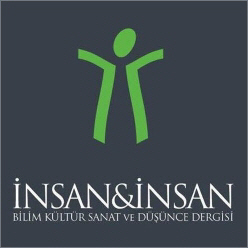Abstract: In this article, parliamentary, presidential and semi-presidential governments are examined in terms of inequality of income distribution and poverty. In this way, it is aimed that hypothetical discussions about the advantages or disadvantages of political systems can be overcome and more refined knowledge about the nature of political systems can be reached through the concrete results of the analyses. In the first part of the study, it is determined and classified which countries in the world are governed by parliamentary system and which are governed by presidential and semi-presidential systems. In the second part, inequality of income distribution, measured by Gini Index (World Bank estimate) in more than one hundred and fifty countries of the world are reviewed and compared by parliamentary, presidential and semi-presidential systems. And in the third part, the poverty levels of one hundred and one countries in Multidimensional Poverty Index, which is developed by Oxford Poverty and Human Development Initiative, are assessed in terms of their affiliation to the competing political systems. According to the results of the study, it is found that inequality of income distribution is less in the countries governed by the parliamentary system, and in a similar way, it is more favorable in terms of poverty. Presidential and semi-presidential countries were found to be in somewhat negative condition in both categories.
Keywords: Parliamentary system, Presidential system, Semi-presidential system, Inequality of income distribution, Gini index, Poverty.
Parlamenter ve Başkanlık Sistemiyle Yönetilen Ülkelerde Gelir Dağılımı Eşitsizliği ve Yoksulluk
Özet: Bu makalede parlamenter, başkanlık ve yarı başkanlık sistemiyle yönetilen ülkeler gelir dağılımı eşitsizliği ve yoksulluk bakımından incelenmektedir. Bu şekilde, yönetim sistemlerinin avantaj veya dezavantajlarına dair hipotetik tartışmaların aşılması, somut araştırma sonuçları üzerinden yönetim sistemlerinin niteliğine dair daha rafine bilgiye ulaşılması amaçlanmıştır. Çalışmanın ilk kısmında, dünyada hangi ülkelerin parlamenter sistemle, hangilerinin başkanlık ve yarı başkanlık sistemleriyle yönetildiği belirlenmiş ve tasnif edilmiştir. İkinci bölümde, yüz elliden fazla ülkenin gelir dağılımı eşitsizliği – Gini Endeksi (Dünya Bankası tahmini) yönetim sistemlerine göre gözden geçirilmiş ve karşılaştırılmıştır. Üçüncü bölümde ise Oxford Yoksulluk ve İnsani Gelişme Girişimi’nin Çok Boyutlu Yoksulluk Endeksi’ndeki yüz bir ülkenin yoksulluk seviyesi rakip siyasi sistemlere bağlılıkları açısından incelenmiştir. Çalışmanın sonuçlarına göre, parlamenter sistemle yönetilen ülkelerde gelir dağılımı eşitsizliğinin daha az olduğu, bu ülkelerin benzer şekilde yoksulluk açısından da daha olumlu durumda olduğu tespit edilmiştir. Başkanlık ve yarı başkanlık ülkelerinin ise bilakis her iki kategoride de olumsuz durumda bulunduğu belirlenmiştir.
Anahtar kelimeler: Parlamenter sistem, Başkanlık sistemi, Yarı başkanlık sistemi, Gelir dağılımı eşitsizliği, Gini endeksi, Yoksulluk.
